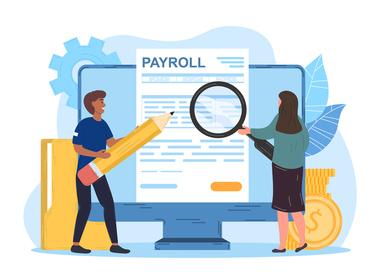The relationship between an employee and an employer is a professional one. Employees do work for employers, who then pay said employees for their time and effort.
But beyond the basic dynamic of employee-employer relationships, how do you establish a situation where everyone feels the circumstances are equally beneficial? How do employers establish fair compensation so their workers receive livable wages?

It all comes down to your payroll process. If you are eager to create a fair workplace that values employees and employers alike, consider pairing your human resources technology with payroll solutions that can prioritize your goals further.
Prompt payment is an excellent place to start, but that is only the beginning. From there, think about specifics, like how you will reduce the health care expenses of your employees as a benefit of working for you.
Another thing to think about is the prospect of upgrading your company’s payroll systems so you can provide your employees with health benefit accounts or dependent care flexible spending accounts.
Furthermore, systems like that may also offer public transportation passes, lifestyle coaching and financial incentives for healthy behavior. In other words, search for payroll-processing options that can assist you with the management of your employees’ health benefits, not just their paychecks.
But on the topic of paychecks, think about how you pay those who work for you. If you have nonsalaried workers, you should anticipate they expect real-time payments rather than waiting for paychecks every two weeks or once per month as with traditional pay periods.
So, can your payroll processing procedures pay your hourly workers immediately after those employees complete a shift? Are you able to accommodate the expectations of your workers?
These are only a couple of the questions you should consider as you think about the future of your payroll system. Consider going mobile with the help of apps like PayPal or Venmo when it comes to payments.
What about apps that you can use to calculate taxes while maintaining consistent records of paychecks sent to employees and of the overall cash flow of the business? And what about your remote workers? An adequate payroll system must have the means to adhere to the tax obligations on local and state levels.
Take stock of new paradigms
As the world changes and technology advances, a need to shift payroll also follows. Old-school ways of running payroll are quickly becoming things of the past as employers continue to favor cloud-based payroll processing. Not only is it easier to learn the ropes of hardware and software, but you also do not need to go anywhere to run payroll, thanks to the remote nature of new opportunities.
With cloud-based payroll systems, you can access data on any device from any location with only an internet connection and the proper software. You can even receive automatic software updates and routine data backups, making it easier to manage payroll-related matters. And how can we discuss the future of payroll without mentioning the rise of artificial intelligence or its role in payroll advances?
For instance, do you want to get a text when someone forgets to clock out? Interested in the option to receive a reply that denotes the correct clock-in times of your workers? These scenarios and more are ones that AI can assist with, but that’s not all. AI can even lend a helping hand when it comes to properly classifying employees and assigning them to appropriate tax brackets.
However, even if you want to integrate AI with your company’s payroll processes, know that you do not have to choose either AI or humans. The two can work together instead of it being one or the other. For example, if you want your payroll data to be integrated with your human resources management system, then look into how the two can coexist.
Keep staff members happy
When you integrate payroll and HR, you can accommodate the preferences of your employees in terms of payroll. This means you can offer benefits like advances, specific direct deposit options, micro-investing and mortgage payments.
Meeting the financial needs of your employees by offering advanced payroll capabilities can help you not only attract talent but keep them as well. This is such an attractive perk of employment that payroll flexibility can be a total differentiator for your company.
Ultimately, remote work and the gig economy have complicated matters when it comes to paying workers for their time and effort. Even so, adjusting with the times and adopting future-forward payroll processes can help you keep up with all of these changes.
